Mozambique, Zululand & beach small group safari
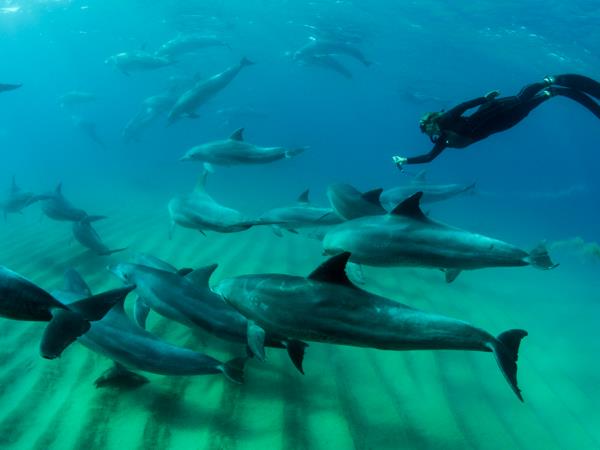
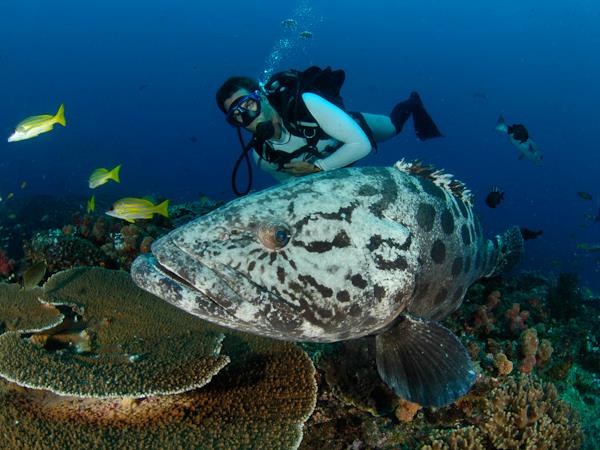
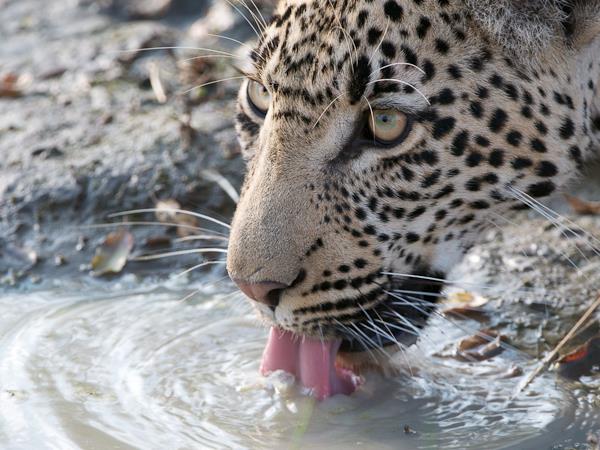
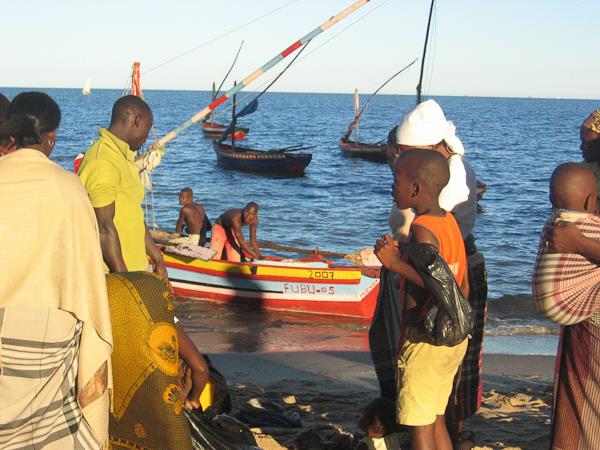
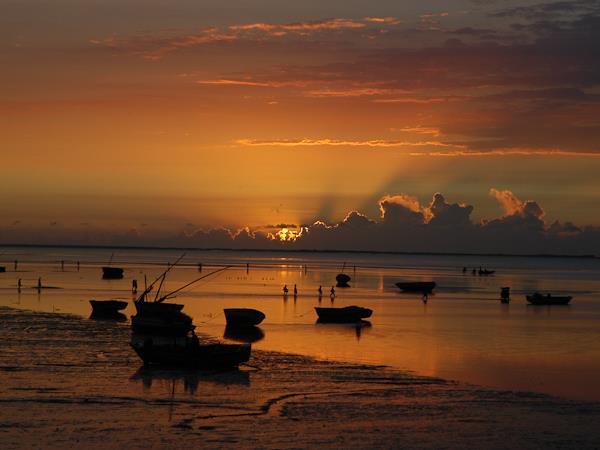
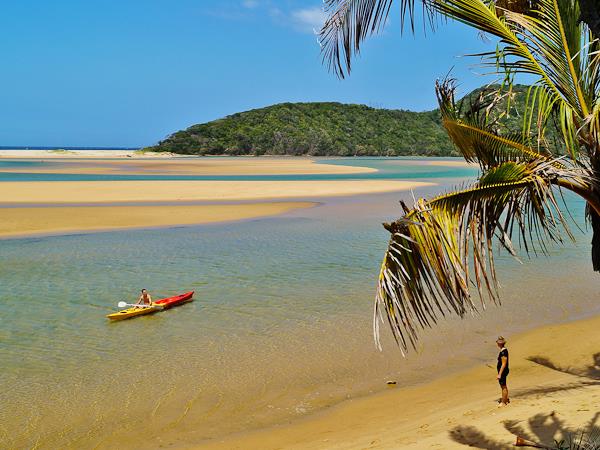
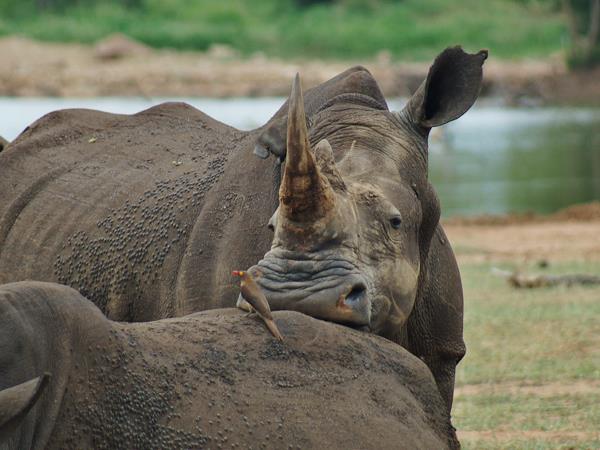
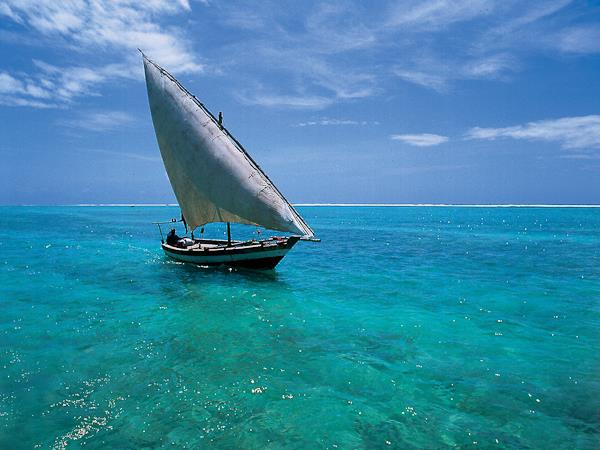
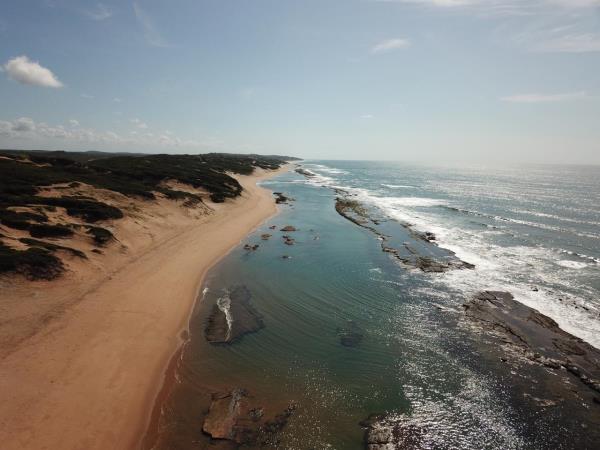
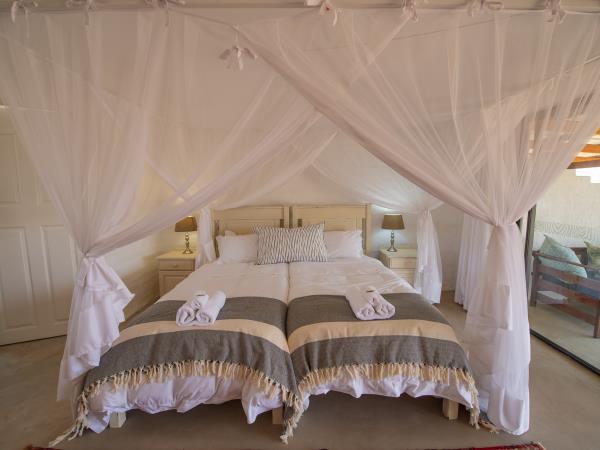
Single supplement EUR 530 (2024) Local payment ZAR 1 500 pp (2024) Minimum age 12
Description of Mozambique, Zululand & beach small group safari
Discover a different side of Southern Africa on this relaxed safari and beach holiday, taking in Mozambique and KwaZulu-Natal. Explore the wildlife of this area on bush walks with a local ranger and game drives and enjoy beautiful beaches where you can dive, snorkel and kayak, too. Discover Zulu culture and in Mozambique, see the influence of Portuguese and Arab traders on this little visited country, in its food and architecture.
This 14 day holiday takes a relaxed pace. Roads can be poor, with pot holes and rain damage making the going slow, and then the animals and children that often wander onto the road slow things down some more! But this is all part of the experience and youll have the chance to observe the local life in the villages as you pass through.
The accommodation, particularly in Mozambique, is simple. You will spend 12 nights on a twin share basis in ensuite chalets or reed chalets known as casistas. As local facilities are limited, most of the meals are prepared by the guiding crew. This includes 13 breakfasts, 13 lunches and 7 dinners are included. Of which 9 breakfasts, 2 lunches and 5 dinners are provided by the lodges. The remaining included meals are provided by the guides, prepared either at the truck or in the self-catering kitchen. Meals will be eaten either under the trees near your chalet or around the campfire at the truck.
This trip relies on all travellers participating a little. Whether thats carrying your own bags or helping to pack the truck in the morning, this is all part of the sociable adventure. Guides prepare the meals, but you will be asked to help out with washing up from time to time. Some of the days involve a lot of travelling and an early start participation is the key to each day running to plan.
There's no best time to travel; you can come pretty much throughout the year. Mozambique has wonderful weather all year, although December through to March sees the most rainfall and it can be really hot sometimes. Malaria prophylactics are recommended.
Map
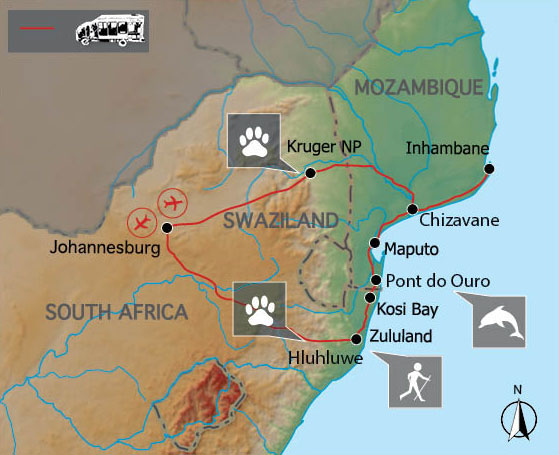
Price information
Check dates, prices & availability
Travel guides
Holiday information
Responsible Travel
Planet
Message from co-Founder of this Tour Operator. My name is Bruce and I am a founder of this tour operation. I believe that the old conservation tactic of the setting aside areas of "exclusion" for conservation are outdated.The reality is that in order for effective, sustainable conservation to take place, there needs to be an interest from the society of that country, conscious effort from government and local "buy in" from the local communities. Sadly the world is in a place where economic benefit is the overriding driving force of action and as such conservation is directly linked to economic benefit. Sustainable tourism is therefore absolutely essential for conservation to be effective. Not only for local communities to see value in conservation, but for countries as a whole to place value in protecting their natural heritage.
I believe there is a deep and instinctual link between our humanity and our natural environment. Inherently we all want to know that the wild places are still out there. And Eco-tourism gives us that opportunity, as we so often hear, to "rebalance" or "rejuvenate".
The various promises and commitments detailed below are only a representation of what it is that we do. I sincerely hope that our tours offer our clients an opportunity to experience the wonders of the African continent, and in some small way through focusing itineraries around wildlife and national parks, we contribute to environmental conservation both economically and spiritually.
If you join one of our trips, and have practical feasible suggestions about our responsible travel practices, please contact us. We strive to improve our operation and if we can do more for conservation in Africa, then we're all ears!
Low impact tourism & supporting local communities:
Small group travel: We specialise in small group travel with a maximum group size of 12 clients & minimum of 4. Small groups ensures a small impact on the destinations we visit when compared to larger groups. Smaller groups create an intimate safari experience, and mean that when we interact with local cultures and stay in environmentally sensitive areas, we do not leave a large footprint.
Fuel consumption: By travelling in a small group your carbon foot print is approximately ½ of self drive safari. The average pick-up car hire runs on approximately 12ltr/100km with generally 2 people per vehicle and this equates to approximately 6ltr/100km pp. Our average safari truck runs on 25ltr/100km with an average of 9.5 clients per tour and this equates to 2.6Ltr/100km pp. So, by joining a small group tour, your fuel consumption is less than half of doing a self-drive 4WD or pick up trip.
Cooking: We cook using gas as far as possible and, whenever feasible, avoiding cooking using fire or coal which depletes limited wood resources.
Wooden carving curios: We do take clients to local curio markets to support the local communities. If they want to buy a carving, we encourage clients purchase only small wooden carvings instead of large pieces. This is in an effort to again conserve the forests around the carving markets.
Waste: We ensure that we take all of our rubbish out of wilderness areas and use proper waste disposal facilities on all tours (and in the workshop, including oil traps, oil recycling, cleaning products etc).
Entrance fees: All entrance fees for the national parks in each country are used by the local authorities to maintain the condition and infrastructure of the national parks, and run regular anti-poaching patrols. These are often supplemented by government grants. The national parks support a large number of local community members often providing housing and schooling for the staff families. For us as a tour operator, supporting the various national park boards is an essential element to each tour.
Accommodation: On all tours wherever possible we use locally owned accommodation establishments which are involved in local responsible tourism initiatives. This provides direct benefits to local communities through employment. We avoid large hotel chains and more commercial properties but opt for simple self-catering lodge, B&Bs and tented camps for accommodation in rural areas. By doing this we create an intimate environment for group away from large scale tourism and the communities around the accommodation benefit directly through employment and this creates pride and further interest in sustainable tourism as the communities have tangible benefits from tourism. Our tours focus on out of the way destinations, and as such, our spend is distributed into rural areas.
Drinking Water: Each client, drinking 5 litres per day from 1 litre plastic bottles produces 100 waste plastic bottles on a 3 week safari. On this calculation, we would pollute the environment (and waste energy resources in plastic production) with over 250,000 plastic bottles per year! So as solution, each of our vehicles has a tank of clean drinking water that is filled up along the journey. This is safe tap water. We do not provide bottle water we encourage clients to drink the local clean drinkable tap water wherever possible in order to minimize the amount of plastic bottle waste produced by the purchase of bottled drinking water.
Water conservation: We are acutely aware that in many areas that we visit water is a scarce resource. Clients are encouraged to be conscious of water usage and not to take long showers or waste water.
Wildlife: On all game drives, our trained and qualified guides ensure that our groups interact with wildlife in the appropriate way. Slow movements, no loud noises and to respect the animals personal boundaries. Our philosophy is that we are visitors in the amazing places that we visit, and we do not want our presence to impact the wildlife and environment in any negative way. We also enforce a policy of not feeding any wildlife (animals habituated to human feeding will turn aggressive in the future which often results in authorities being forced to kill that animal) and to appreciate the natural state of the areas that we visit and to leave the area in exactly the same condition that it was when we arrived.
Local guides & communities: On each tour you will travel with two guides for the entire trip. In addition, we also employ local guides for certain activities on tour. These local initiatives help to maintain local cultures and also sustain the ideals of wildlife conservation. Tourism, goodwill and conservation all work together and we aim to maintain the delicate balance at all times! The employment of local guide adds value to our clients visit because they can gain specific local knowledge and expertise from the people who actually live permanently in the area they are visiting. These interactions also give our clients the chance to meet local people and see how tourism is benefiting Africa, piece by piece.
We use local guides at:
Botswana: Okavango Delta, Chobe NP, Ghanzi San Bushman excursion, national parks
South Africa: Mkuzi village walk, Qunu Mandela historical site, Kozi Bay
Swailand: Hlane walking
Lesotho: Malealea Lodge pony trekking guide
Malawi: Boat excursion on Lake Malawi
Mozambique: Dhow excursions
Namibia: Brandberg walk and drives (part of the Tsiseb Community Conservancy), Spizkoppe walk, Gariep River canoeing, Sossusvlei 4WD drivers,
Zambia: Lower Zambezi Canoe excursion, South Luangwa game walks and drives, Vic Falls optional activities
Zimbabwe: Great Zimbabwe Monuments, Matobos NP, Hwange NP, Victoria Falls
For more information on each of the community projects please talk to your guide or contact us.
Underprivileged Children Groups: We operate a number of tours into the national parks of South Africa for underprivileged children from schools based in Johannesburg, South Africa. PEN Organisation is an independent, non-governmental and social development organisation. Its activities focus on neglected and abandoned children and orphans, as well as disadvantaged families. We try to run these tours as often as possible during the course of a year. We believe that the youth are Africas future and that environmental education is important. This opportunity allows them to see for themselves wildlife (perhaps for the first time), nature conservation at work, and also show them employment opportunities that are available in the conservation or tourism industry, and possibly encourage them to follow a career in tourism (for this reason we aim these groups at 14-18 year olds).
Local crafts and produce: At all local markets where fresh produce and crafts are sold and produced, we encourage the clients to barter (gently and in good humour) with the local people. This not only allows the clients to get involved with the local way of life, and interact directly with the local people, but also provides them a platform to experience local life first hand. Having said that, we explain to the clients by bartering too hard for a good deal might seem like a lot of money at the time, but if the amount being haggled over is converted to either US$, Euro or GBP, it amounts to very little. This is the local livelihood and we advise them to keep this in mind at all times.
Wildlife Rehabilitation Centre: We assist a wildlife rehabilitation centre in Springs, Johannesburg. Judy Davidson runs a licensed rehab centre from a small holding. A variety of birds are cared for, from injured barbets, doves, and crows to a brown snake eagle, a Gymnogene, and spotted eagle owls. All birds are treated in a small makeshift clinic, and then kept in aviaries until they have recovered. Once able to fly, or care for themselves again, they are moved to a 'flight' aviary, for a period until they have regained strength. They are then released back into the wild. Those birds which are unable to be released are kept in large aviaries and fed through various donations. We assist the project with donations of practical equipment including shade netting, paint and other items on their wish list.
People
Kosi Bay: In Kosi Bay we are introduced to this amazing area by local guides who take us on a canoe trip at the lakes, walks in the mangrove forests and into the local Zulu Village. All of the guides used in Kosi Bay, are local and live in the area. Their employment in the area ensures that the community values tourism and are thereby committed to preserving the area. In Kosi Bay, the age old tradition of using traditional fish traps is still in use, and this sustainable method of fishing is a practice that is not only interesting to see, but also shows us how using resources in a sustainable way can be very successful.The lodge at which we stay is also a joint community venture, where the land was made available by the community and then the lodge is operated, with local staff compliment, and a portion of profits are shared with the community. These funds are then used to benefit the community as a whole, for example funding school, water and clinic expenses.
Popular similar holidays
South Africa safari with beach break in Mozambique
From £3995 - £4250 10 days including domestic flights only
Bush and beach safari.in South Africa & Mozambique
South Africa explorer and Mozambique beach holiday
From £4000 14 days excluding flights
Western Cape, Kruger safari & Mozambique beaches
Family luxury safari & beach holiday, South Africa & Mozambique
From £4695 12 days including UK flights
Combine a wildlife safari in South Africa with beach time



















